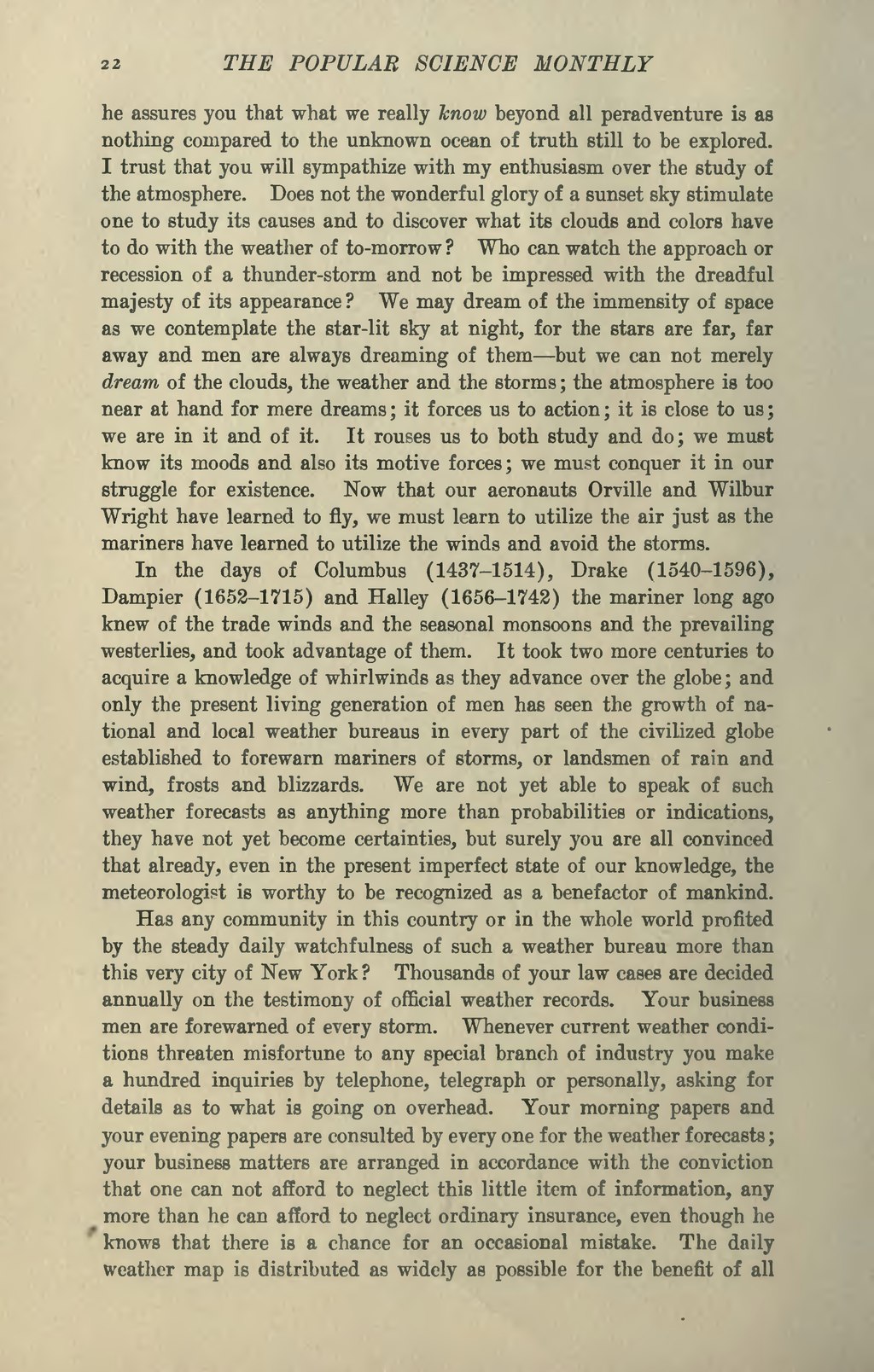he assures you that what we really know beyond all peradventure is as nothing compared to the unknown ocean of truth still to be explored. I trust that you will sympathize with my enthusiasm over the study of the atmosphere. Does not the wonderful glory of a sunset sky stimulate one to study its causes and to discover what its clouds and colors have to do with the weather of to-morrow? Who can watch the approach or recession of a thunder-storm and not be impressed with the dreadful majesty of its appearance? We may dream of the immensity of space as we contemplate the star-lit sky at night, for the stars are far, far away and men are always dreaming of them—but we can not merely dream of the clouds, the weather and the storms; the atmosphere is too near at hand for mere dreams; it forces us to action; it is close to us; we are in it and of it. It rouses us to both study and do; we must know its moods and also its motive forces; we must conquer it in our struggle for existence. Now that our aeronauts Orville and Wilbur Wright have learned to fly, we must learn to utilize the air just as the mariners have learned to utilize the winds and avoid the storms.
In the days of Columbus (1437-1514), Drake (1540-1596), Dampier (1652-1715) and Halley (1656-1742) the mariner long ago knew of the trade winds and the seasonal monsoons and the prevailing westerlies, and took advantage of them. It took two more centuries to acquire a knowledge of whirlwinds as they advance over the globe; and only the present living generation of men has seen the growth of national and local weather bureaus in every part of the civilized globe established to forewarn mariners of storms, or landsmen of rain and wind, frosts and blizzards. We are not yet able to speak of such weather forecasts as anything more than probabilities or indications, they have not yet become certainties, but surely you are all convinced that already, even in the present imperfect state of our knowledge, the meteorologist is worthy to be recognized as a benefactor of mankind.
Has any community in this country or in the whole world profited by the steady daily watchfulness of such a weather bureau more than this very city of New York? Thousands of your law cases are decided annually on the testimony of official weather records. Your business men are forewarned of every storm. Whenever current weather conditions threaten misfortune to any special branch of industry you make a hundred inquiries by telephone, telegraph or personally, asking for details as to what is going on overhead. Your morning papers and your evening papers are consulted by every one for the weather forecasts; your business matters are arranged in accordance with the conviction that one can not afford to neglect this little item of information, any more than he can afford to neglect ordinary insurance, even though he knows that there is a chance for an occasional mistake. The daily weather map is distributed as widely as possible for the benefit of all
